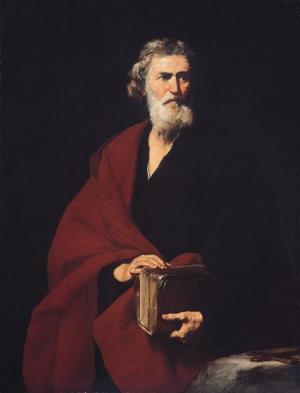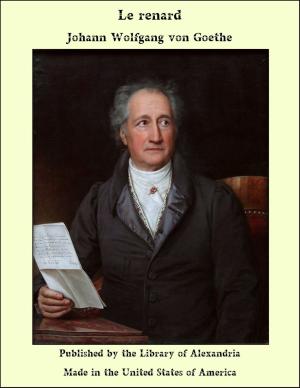A Cruise in the Sky: The Legend of the Great Pink Pearl
Nonfiction, Religion & Spirituality, New Age, History, Fiction & Literature| Author: | Harry Lincoln Sayler | ISBN: | 9781465622402 |
| Publisher: | Library of Alexandria | Publication: | March 8, 2015 |
| Imprint: | Language: | English |
| Author: | Harry Lincoln Sayler |
| ISBN: | 9781465622402 |
| Publisher: | Library of Alexandria |
| Publication: | March 8, 2015 |
| Imprint: | |
| Language: | English |
All afternoon the train had been following the picturesque shore of the Indian River, in Florida. The snow and ice of the north had long since disappeared. Summer heat increased as the train sped southward. Most of the seats in the car were filled with tourists on their way to Palm Beach. Two persons, both from their looks and actions, were not destined to that aristocratic winter resort. In one of the sections were a woman and a boy. The latter, about sixteen years old, was begrimed with dust and smoke, but there was a snap in his eyes. In the fast gathering dusk, he sat, his nose mashed against the window and his eyes shaded by his hands, as if anxious to catch every detail of the strange land through which the train was flying. The woman glanced out of the window now and then in a nervous manner, and, at last, when it was almost wholly dark and the porter had begun to turn on the electric lights, she touched the boy on the shoulder. “Look at your watch again, Andrew. We must be almost there.” As the boy drew out a watch (his father’s, lent to him as a safeguard on the long trip), his lips puckered. “Twenty minutes!” he exclaimed, almost in alarm. “We’re due at Valkaria at 8:15. It’s five minutes of eight now.” “O, dear, I hope they won’t forget to stop,” said the woman, with increasing nervousness. “Hadn’t you better speak to the conductor again? I don’t know what we’d do if we were carried past our station.” “I know,” answered the boy, with a laugh. “If they forgot us, they’d have to bring us back for nothing. But the conductor won’t forget. I’ve pestered him so often about it that I guess he’ll be glad to get rid of us.” “I never thought about it being dark when we got there,” the woman went on, as the lights in the car turned the outside world into blackness. “I suppose we’d better not try to open up your uncle’s house to-night.” She looked out into the deep shadows of the palmettos. “We’ll go to a hotel or boarding house to-night.” “What’s the use?” argued the boy. “That is, unless you are too tired. It’ll be a useless expense. I’d like to find the house to-night, if we can. Someone can show us. Every one in the town’ll know where Uncle Abner lived.” “We must go to Captain Anderson first,” replied the woman at once. “He is the one who wrote to us of your uncle’s death, and sent the body to us for burial. He has the key to the house, and he was your uncle’s friend.”
All afternoon the train had been following the picturesque shore of the Indian River, in Florida. The snow and ice of the north had long since disappeared. Summer heat increased as the train sped southward. Most of the seats in the car were filled with tourists on their way to Palm Beach. Two persons, both from their looks and actions, were not destined to that aristocratic winter resort. In one of the sections were a woman and a boy. The latter, about sixteen years old, was begrimed with dust and smoke, but there was a snap in his eyes. In the fast gathering dusk, he sat, his nose mashed against the window and his eyes shaded by his hands, as if anxious to catch every detail of the strange land through which the train was flying. The woman glanced out of the window now and then in a nervous manner, and, at last, when it was almost wholly dark and the porter had begun to turn on the electric lights, she touched the boy on the shoulder. “Look at your watch again, Andrew. We must be almost there.” As the boy drew out a watch (his father’s, lent to him as a safeguard on the long trip), his lips puckered. “Twenty minutes!” he exclaimed, almost in alarm. “We’re due at Valkaria at 8:15. It’s five minutes of eight now.” “O, dear, I hope they won’t forget to stop,” said the woman, with increasing nervousness. “Hadn’t you better speak to the conductor again? I don’t know what we’d do if we were carried past our station.” “I know,” answered the boy, with a laugh. “If they forgot us, they’d have to bring us back for nothing. But the conductor won’t forget. I’ve pestered him so often about it that I guess he’ll be glad to get rid of us.” “I never thought about it being dark when we got there,” the woman went on, as the lights in the car turned the outside world into blackness. “I suppose we’d better not try to open up your uncle’s house to-night.” She looked out into the deep shadows of the palmettos. “We’ll go to a hotel or boarding house to-night.” “What’s the use?” argued the boy. “That is, unless you are too tired. It’ll be a useless expense. I’d like to find the house to-night, if we can. Someone can show us. Every one in the town’ll know where Uncle Abner lived.” “We must go to Captain Anderson first,” replied the woman at once. “He is the one who wrote to us of your uncle’s death, and sent the body to us for burial. He has the key to the house, and he was your uncle’s friend.”















